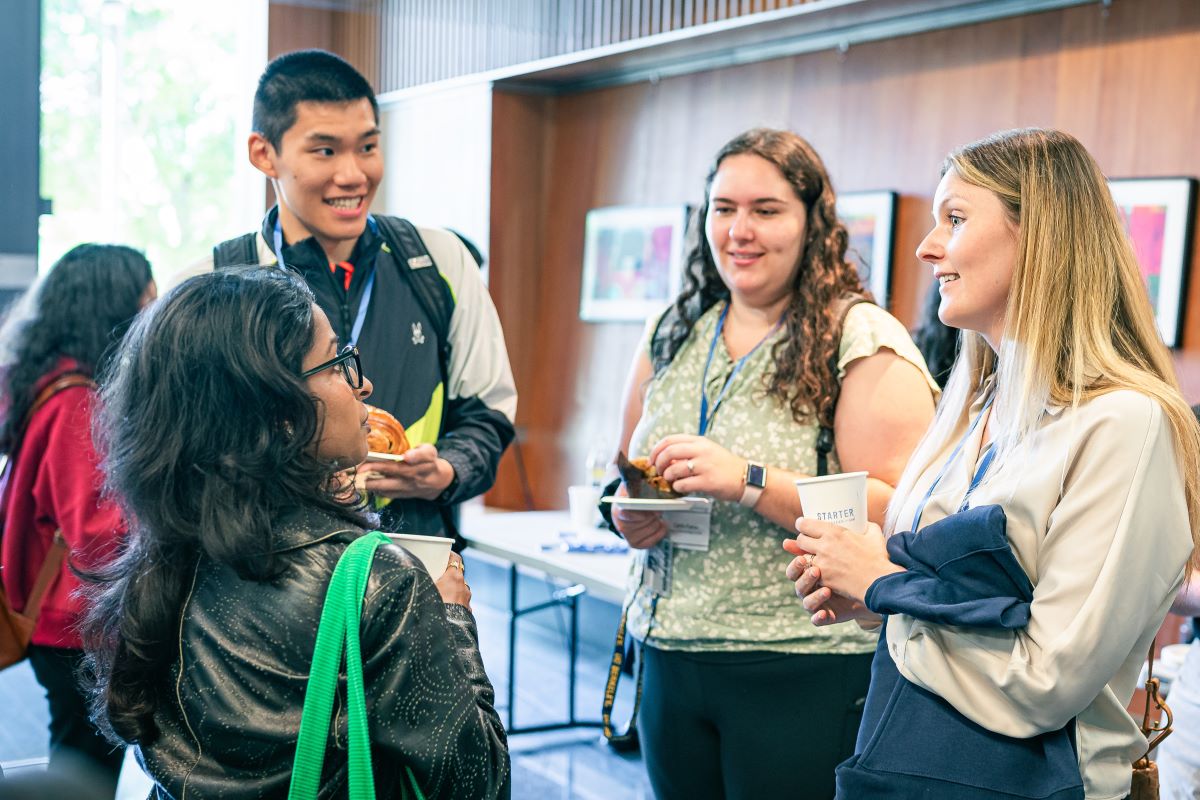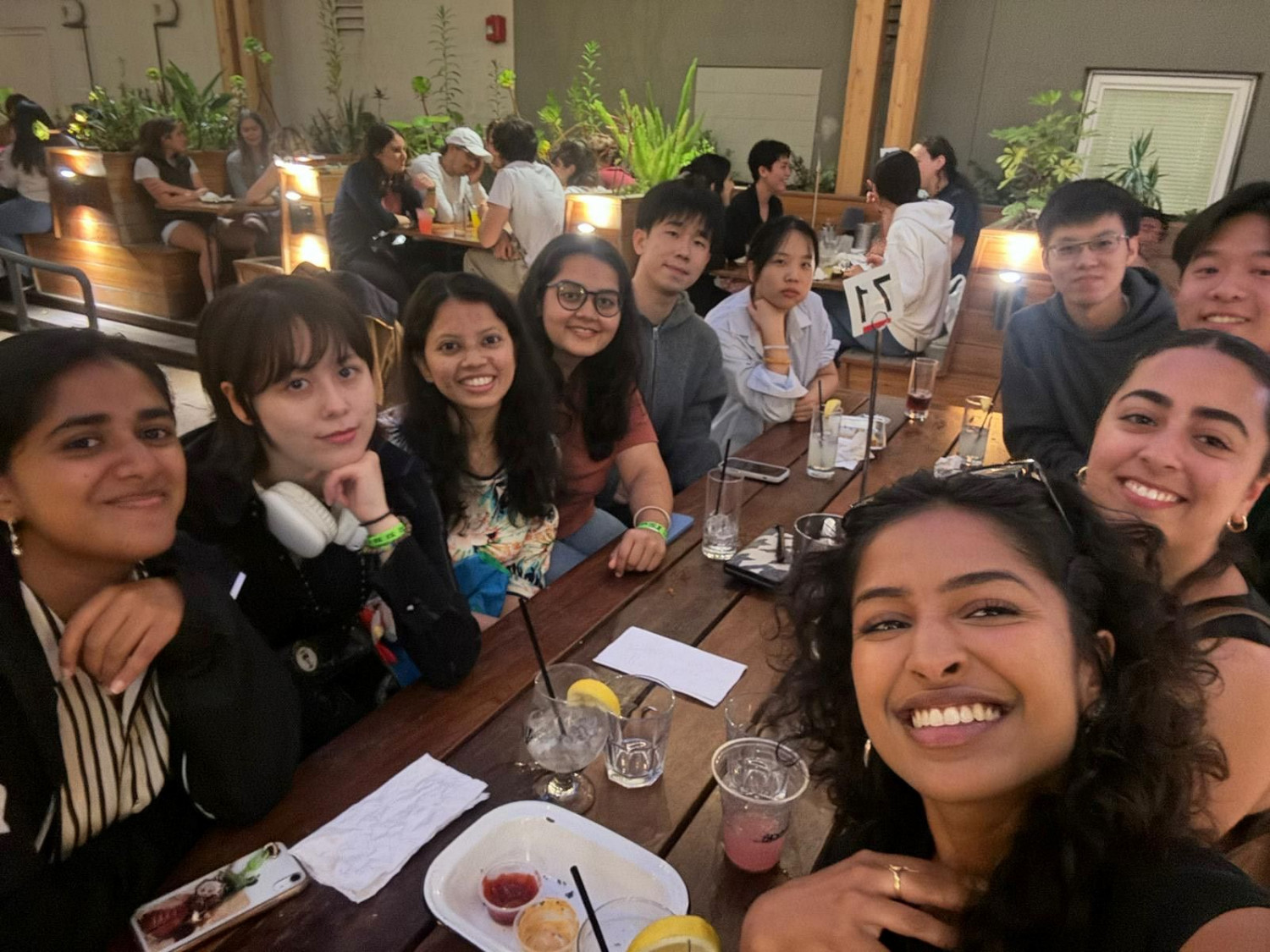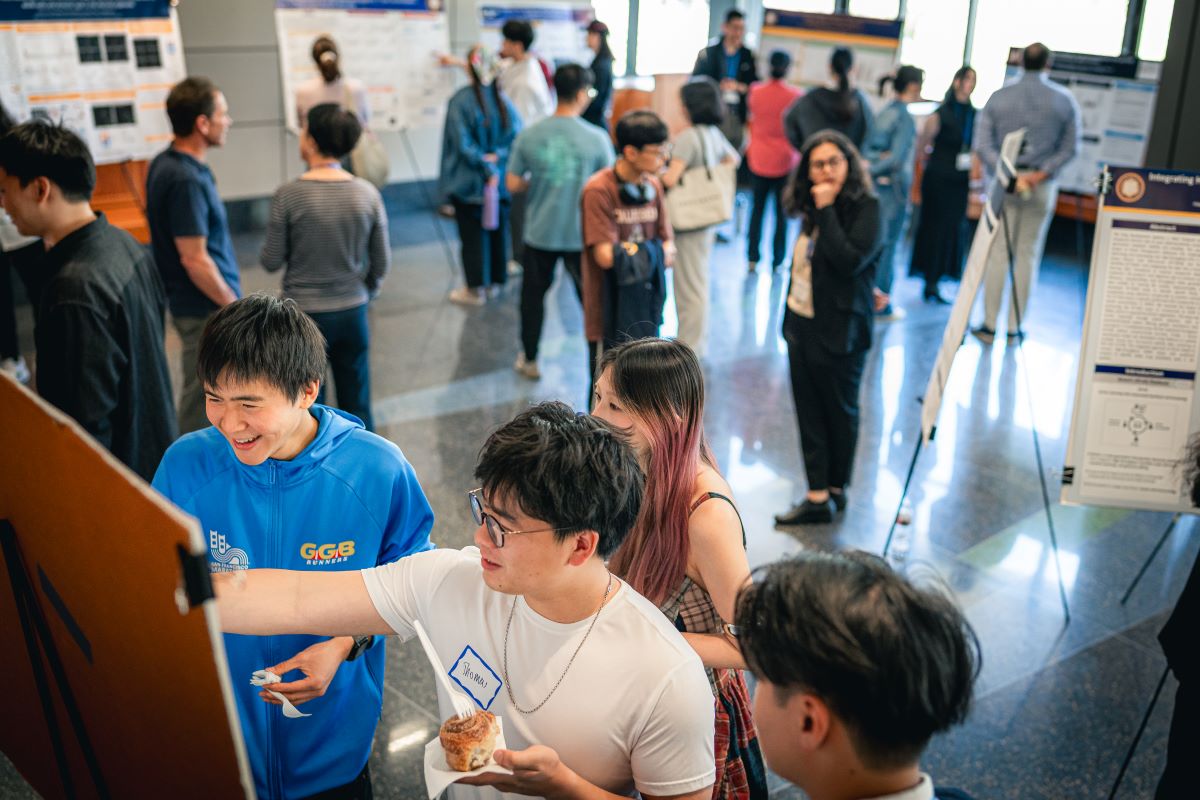Celebrating the First Cohort of the Master of Biotechnology Program
By Kirsten Mickelwait

In our Fall 2023 issue, we announced the creation of a new Master of Biotechnology degree program that fully launched in the summer of 2024. That inaugural Kang Family master’s class is now on the cusp of graduation—a perfect time to check in on the program and its impact.
The one-year accelerated professional program provides coursework, hands-on laboratory training, professional mentorship, and a capstone project. Its most distinctive feature is a three-month internship at a campus lab/facility or biotech company.
In contrast to similar programs at Berkeley and elsewhere, MCB’s offering is preparing future professionals at the mid-career level for a wide range of roles including bench-side research, mid-level management, development, and other business-related roles. Its curriculum trains students to learn state-of-the-art technologies but also to have an overall view of the biotech industry. The program is designed to cultivate scientists and mid-level managers who can readily adapt to new challenges in an ever-changing field.
According to the program’s academic coordinator, Tsai-Ching “Jack” Hsi, this first cohort of 16 students will have a 100% graduation rate. Because he also served as an instructor in both core lab courses, Hsi has worked closely with this motivated group.

Of the 16 students, four previously attended UC Berkeley, nine came from other U.S. universities, and three from foreign universities. Some arrived directly from undergrad, while others had already been working in industry.
At this writing, we don’t have firm details on job placements, but the current cohort plans to stay within the general field of biomedicine—either conducting research in an academic lab, pursuing a PhD program, or going to work for a biotech company. Of the latter, some will join research departments and others will head to the business development side.
“The program’s interdisciplinary approach strengthened my ability to bridge wet-lab research with data-driven insights, making me well-equipped to tackle complex biological questions,” says Roshni Raha, M.Biotech ’25. “Whether it's working in R&D, helping to translate scientific innovations into marketable therapies, or leveraging data science for biotech strategy, I want to be at the intersection of cutting-edge research and real-world impact.”
Hsi found the first-cohort students to be an impressive group. “They were all super-enthusiastic and super-curious,” he says. “They were also flexible, able to quickly adapt to new ways of thinking and picking up new research skills, and then to switch gears easily from their coursework to their internships. They’ve become such a tight-knit group, supporting each other and ensuring that they’ll all succeed.”

“We’ve had an outstanding group of students in our inaugural cohort who are extremely motivated and hard-working, and exemplify love of learning in both their coursework and internships,” adds Dr. Kunxin Luo, the program’s director. “We couldn’t be more proud of them and their achievements.”
The internship component is the program’s strongest asset, cultivating partnerships with local biotech companies to set up internship opportunities for students to apply for. “We’re trying to lower the activation barrier to finding an internship,” Hsi says. “We don't just throw our students out there and say, ‘good luck.’ We have a panel of positions that have been arranged with companies beforehand.” In some cases, if the internship goes well, there might even be a job offer waiting at the other end, though that outcome isn’t guaranteed.
“There's no way I could've gotten an internship that aligns with my goals as well as this one does without being in this master's program,” says Anusha Bansal M.Biotech ‘25. “The internship aspect also really helped me to explore jobs in biotech beyond the bench—something I was interested in before but had no real experience in.”

Some of this year’s students have been conducting basic research on the Berkeley campus. Others have been pursuing drug discovery and high-throughput screening at local biotech firms. From identifying potential drug targets and analyzing drugs’ effects to performing market analyses to identify emerging markets, the program’s students are engaged in a wide range of projects.
Participating labs include the Raulet Lab, the Bilder Lab, the Nabhan Lab and QB3 high-throughput screening facility, the Lewis Lab, the DuPage Lab, the Bateup Lab, and the Lammel Lab. Participating biotech firms include Addition Therapeutics, Eureka Therapeutics, Kimia Therapeutics, and Octant Bio. Course instructors include Robert Beatty, Dirk Hockemeyer, Nicholas Ingolia, Samantha Lewis, Kunxin Luo, David Savage, and Julia Schaletzky.
The future of the Master of Biotechnology program is bright: The 2025 cohort is expected to include between 22 and 25 students, and the program will grow steadily until it can accommodate 60 students per year. Hsi says that program leaders are also looking to expand the number and types of courses offered, as well as exploring cross-disciplinary relationships with other colleges and departments on campus.
Learn more about the Master of Biotechnology degree here. If you know of internship opportunities in campus labs or affiliated companies, please reach out to Cathy Zhao at ycazhao@berkeley.edu.
Banner image: Johnny Gan Chong
Back to Main Spring 2025 Newsletter Page





